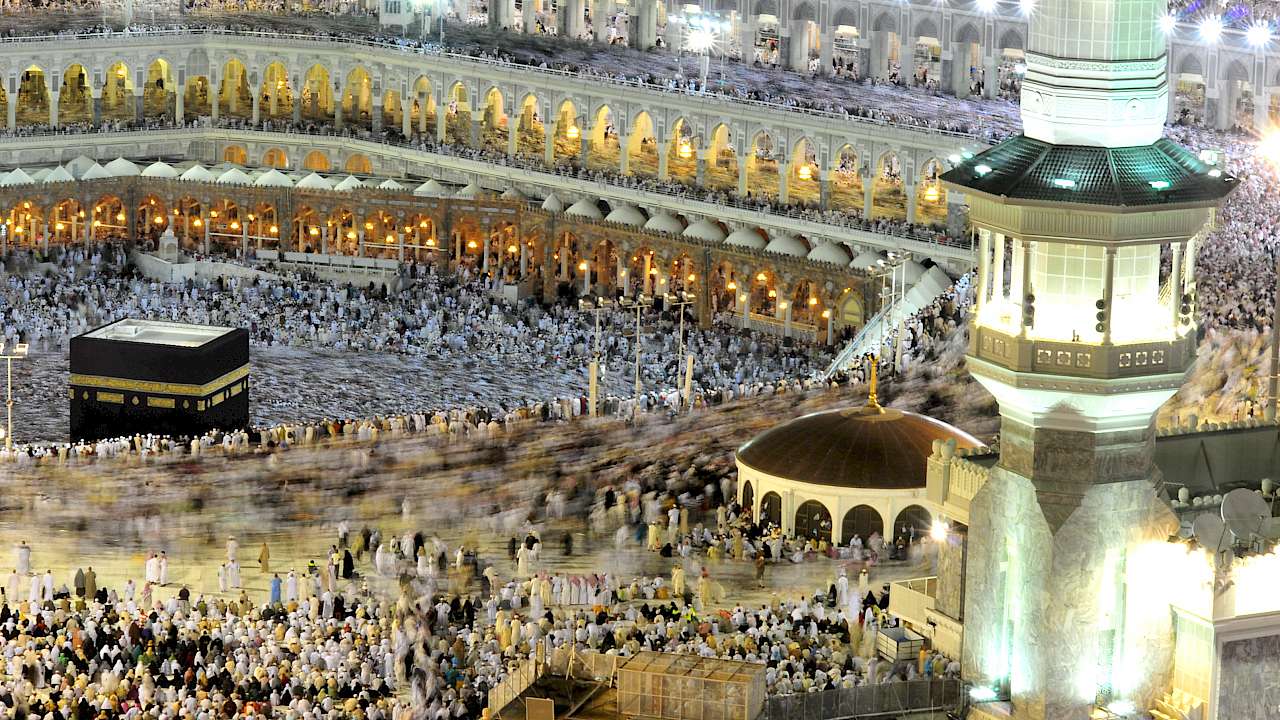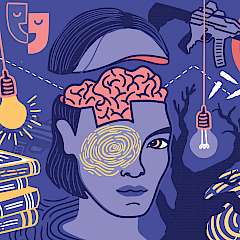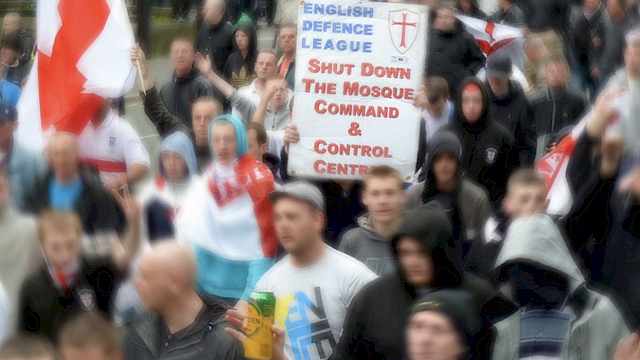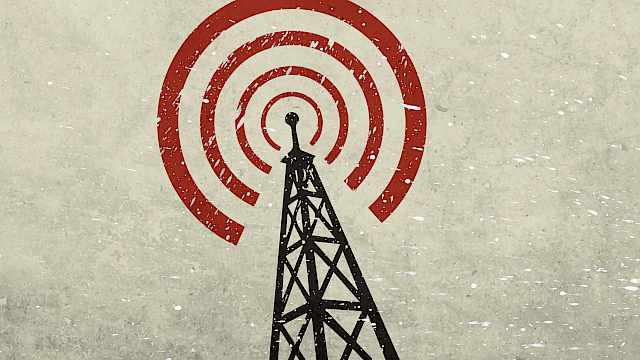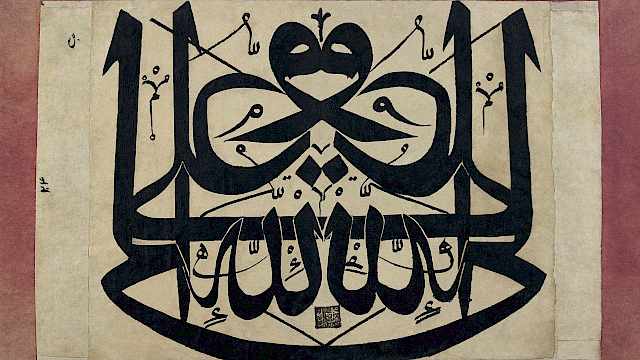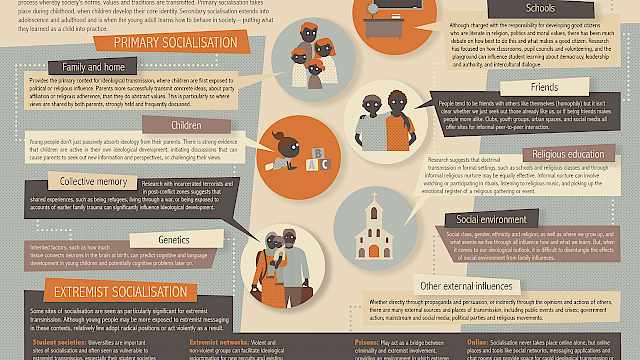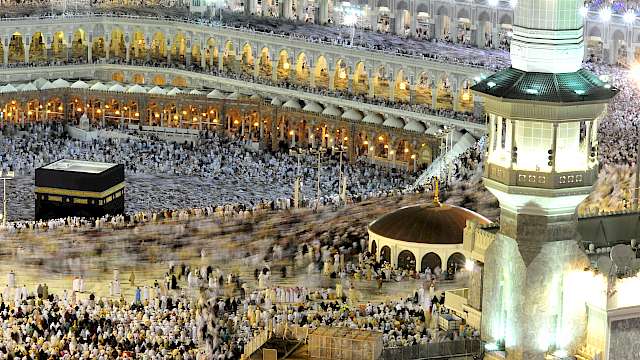The five pillars – the declaration of faith (shahada), prayer (salah), alms-giving (zakat), fasting (sawm) and pilgrimage (hajj) – constitute the basic norms of Islamic practice. They are accepted by Muslims globally irrespective of ethnic, regional or sectarian differences.
Upholding the pillars is considered obligatory for all sincere followers of the Prophet Muhammad, male and female, Sunni and Shi‘a, but that doesn’t mean that all those who identify as Muslims keep them consistently. As in all religions, circumstances vary and some people are more committed than others. Such things as age, stage of life, work, family responsibilities, health and wealth all make a difference.
The pillars
The Shahada is the fundamental statement of faith and commitment made by Muslims: “There is no God but God (Allah), and Muhammad is His Messenger.” It distinguishes Muslims from those of other faiths. The Shahada is perhaps better known in the West as the Arabic phrase on the flags of ISIS, al-Shabaab and Boko Haram. However, the Shahada is by no means the preserve of violent groups, in fact reciting it three times in front of witnesses is a requirement of becoming a Muslim.
Salah is the ritual prayer of Islam through which all Muslims conform to the will of Allah. Prayer is performed in the direction of Mecca five times a day. Friday is set aside as the day for congregational prayer (Jum’a). The ready knowledge that large numbers of Muslims will be gathered together for communal prayer has frequently been exploited by terrorist networks such as Islamic State. In 2015 and 2016, Shi‘a mosques were bombed in Kuwait, Yemen, Saudi Arabia and Iraq. Boko Haram has also attacked mosques in northern Nigeria. Places of worship full of people at prayer represent easy symbolic targets for suicide bombers, where maximum damage and loss of life can be achieved.
The term zakat refers to the obligatory donation of a portion of a Muslim’s surplus wealth. Islamic charities encourage donors to use their services to relieve suffering and to help refugees, victims of environmental disasters, the urban poor and those in conflict zones and in recent years relief has been provided in Gaza, Syria, Yemen and Iraq. Whilst the majority of charities operate within the law, some have been banned following allegations that they have used their resources to fund terrorist activities.
Sawm – Muslims are expected to fast during Ramadan – the ninth month in the Islamic calendar. During daylight hours (which vary depending on the time of year in which Ramadan falls), they abstain from food and drink, sexual activity and smoking, breaking the fast with a meal after sunset. Those who are elderly, ill, pregnant or breast-feeding are exempt, and children are not required to participate.
Completing the Hajj, the pilgrimage to Mecca, is a duty that every Muslim should perform during their lifetime. All pilgrims should be in good physical and spiritual health before they make the journey. Whilst in Mecca, they complete a series of individual and collective actions on the various days of their visit, following a pattern set by Muhammad.
Some two million Muslims from around the world went on Hajj in 2015. The 25,000 pilgrims who travelled from the UK joined thousands of Muslims from many other countries, all performing the same rituals irrespective of their many differences.
Knowing something about the five pillars and their significance for Muslims isn’t just important to correct misunderstandings about what Muslims believe, it is also important in the work environment and for good working relations. For example, Muslim colleagues may request breaks and a space for prayer as well as support whilst fasting during Ramadan or annual leave at the time of the Hajj. These are important issues for all Muslims, and not markers of fundamentalism. Understanding this better can help overcome prejudices about Muslims.
Copyright Information
As part of CREST’s commitment to open access research, this text is available under a Creative Commons BY-NC-SA 4.0 licence. Please refer to our Copyright page for full details.
IMAGE CREDITS: Copyright ©2024 R. Stevens / CREST (CC BY-SA 4.0)
